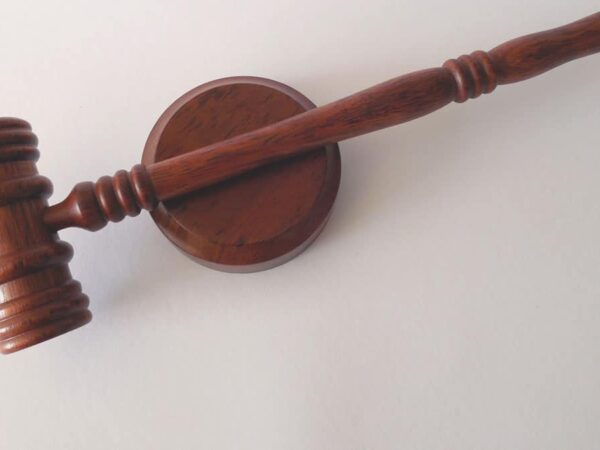Doing Business As: All About DBAs
Not sure if you should be using a different business name? Learn more about the pros and cons of “Doing Business As” names or DBAs.

You may have heard the term “DBA” and wondered what those three letters stood for. Simply stated, DBA is a legal term that means “doing business as.” In short, if a company is using a DBA, it means that the company is doing business under a different name than that company’s legal business name. But you chose your business name for a reason—why use a DBA?
What is a “Doing Business As” or DBA?
The three letters “DBA” stand for “Doing Business As.” A DBA is an operating name that a company uses to conduct business, which is a separate and distinct name from the formal legal name of the company.
DBA names are also commonly known as “trade names,” “assumed names,” or “fictitious names.” Certain states, counties, and cities require that companies using a fictitious DBA name file that “fake” name for the ultimate protection of that businesses’ consumers.
It is important to know that using a DBA to do business under another name doesn’t create a distinct business entity. Rather, the DBA is merely a description of the person or corporation who does business under some other name. The original legal business still exists and has not been superseded, replaced, or in some way altered by the “fake” DBA business name.
Why Use a DBA?
- Separating Business Names from Personal Names: When you’re running a sole proprietorship, your personal name and your business name are legally the same. The same principle applies to businesses run as a simple partnership. In these instances, using a DBA allows you to conduct business under another name rather than just using your personal name(s) and identity as the “face” of your business.
- Banking and Accounting Reasons: Filing a DBA for your small business can help you with your small business banking and accounting. Your DBA will be assigned a federal tax ID number that permits you to open a business bank account under your DBA. Filing a DBA as a sole proprietorship or simple partnership makes it possible for you to open bank accounts and receive payments in the DBA name of your business.
Note that if you plan to get a bank account for your DBA, many banks won’t allow you to open a business bank account without verifying a copy of your filed DBA. Your bank may require you to provide a DBA certificate at the time of your account opening.
- Wooing Prospective Clients: Some clients may require you to have a DBA in order for your business to contract with them. It can help avoid legal confusion between your own name and your business name, which could cause contractual difficulties. A DBA also sounds more professional than a personal name.
- Expand to a New Area: When you’re a small company, as you grow, you may expand to new areas which are not currently reflected in your legal business name. Using a DBA to create a more descriptive business name can help earn you new clients or customers.
For example, if you currently own a house cleaning service called “Pam’s House Cleaning Services” but want to expand to pet and house sitting, then you can file a DBA called “Pam’s Pet and Home Sitting Services” to include your new focus.
- Create Specialized Marketing Names: Filing a DBA allows your business the freedom to use a business name that can help you specifically market your products or services. This specific focus can allow a business to create a DBA that is in line with your targeted marketing and PR efforts.
DBAs also allow you to pick a business name that reflects your brand identity. For example, if you’re starting up a handmade jewelry business, you have the option of selecting a DBA for your business which reflects your company and your name. If you wanted to operate the company under a name other than your own, for instance, you could use the legal business name “Jennifer Smith” and file the DBA as “Jen’s Custom Jewelry.”
- Use a DBA When Your Company Operates Another Business: If you run multiple segments of one company, you may want a DBA for each section to keep them separate in people’s minds while still keeping your business as one legal entity. For example, you may want different DBAs if you’re selling both men’s and women’s clothing. That makes it easier to operate with two distinct websites (designed to appeal to each market).
Creating DBA Names
There’s broad latitude in creating and using a DBA name. In fact, there are not many restrictions at all on what is considered an appropriate DBA — it’s up the business owner to choose the best name fit for their unique business.
There is one major restriction: DBAs cannot include language that may lead customers to think that the unincorporated business is a corporation. Therefore, the words “corporation, Inc., incorporation, or Corp.” are prohibited from use in a sole proprietorship or general partnership DBAs.
Of course, this exception does not apply if the company is a formal corporation legally registered with the Secretary of State. This limitation exists to prevent businesses from using DBAs to falsely indicate that they have incorporation status.
How Do Small Businesses Register DBAs With State and Local Entities?
Procedures for filing a DBA vary among states. It’s important to determine your DBA requirements based on your specific location. In general, you’ll need to submit a form and pay a registration fee.
Some business experts recommend that all small businesses should register their DBAs, regardless of whether you are legally required to file. Multiple businesses are allowed to go by the same DBA name in the same state, so if you find out your DBA is already in use, you may still be able to use some parts of the name or pick a different name entirely.
The DBA Publication Requirement
Some jurisdictions require businesses to publish their prospective DBA names in the legal notices of a local newspaper. This is intended to give proper notice to anyone else using the DBA name. The time period may vary, but typically, the DBA notice may need to be published once per week for a period of four weeks.
Is a DBA a Trademark?
It is important to note that a DBA name is different from a trademark. A DBA gives your business certain distinctions and benefits but does not protect your business name from being used by others. For that, you need to seek separate trademark protection.
Business experts recommend that all small businesses conduct a business name search and search for existing trademarks before filing a DBA. For more information on trademark protection and intellectual property issues, visit our resource What is a Trademark (and Why Do I Need One)?
What’s in a Name?
Using a DBA allows your small business to conduct business, open bank accounts, and receive payment under a name different than the legal name of your business. It can help you cater your business name to your legal and marketing needs, as well as helping avoid confusion with your customers and vendors. Just remember to check all the legal boxes to make sure your DBA is legally recognized as legitimate.
Learn More
When it comes to your finances, you want clear guidance and easy-to-implement tools based on your unique needs. Visit Learn with AOF to get started strengthening your financial management and meeting your goals.
Experience a different kind of financial education. Learn with AOF has flexible, on-demand courses developed by small business owners, for small business owners. Learn on your schedule, with no time commitment or limit. Save your progress any time to fit courses into your busy schedule.









